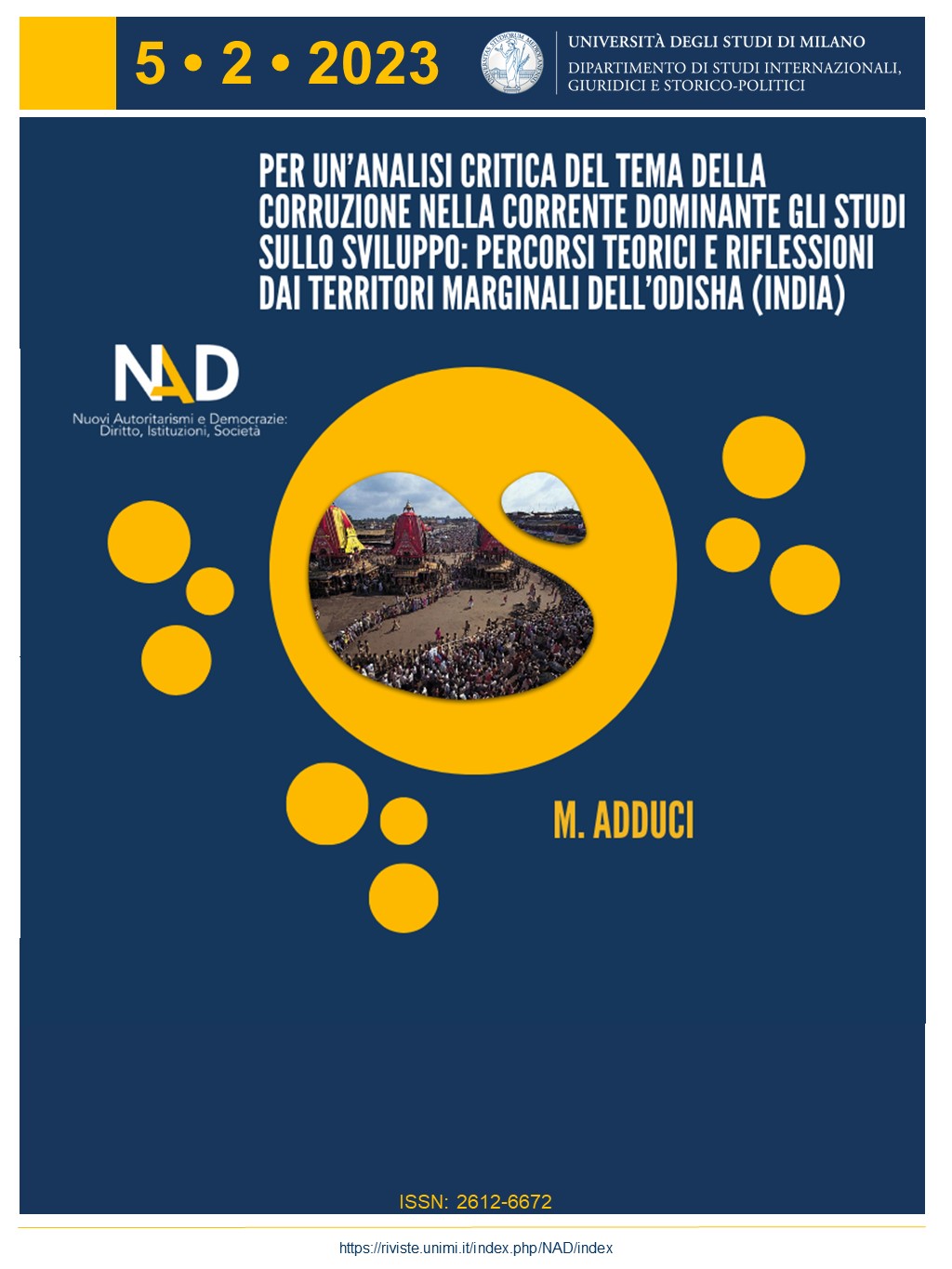Per un’analisi critica del tema della corruzione nella corrente dominante gli studi sullo sviluppo: percorsi teorici e riflessioni dai territori marginali dell’Odisha (India)
DOI:
https://doi.org/10.54103/2612-6672/21686Parole chiave:
Neoliberalism, Corruption, Poverty, International Development, OdishaAbstract
The rise and consolidation of neoliberalism witnessed, inter alia, the emergence of a discourse on the causes of poverty centred on public corruption, which has informed the mainstream of development. In this perspective, the goal of “long-term economic growth and shared prosperity” has to be achieved – parallel to the implementation of core economic reforms – by combating corruption. As a matter of fact, governments of developing countries are called upon to fight corruption, under the watchful eye of a civil society, which is presumed not to question the framework of neoliberal reforms. Here, we would like to propose a critical reading of this normative framework by questioning, in a historical perspective, the main theoretical assumptions underlying it as well as the notion of corruption, which informs it. Not least, we will raise the question of which spaces, if any, are left to take into consideration the role to be played by redistributive public policies in the struggle against poverty in the world’s South. Finally, we will propose some reflections resulting from a long period of fieldwork research in the Indian state of Odisha, historically plagued by severe levels of material poverty and social inequality, and affected by the proliferation of corruption practices inherent to the exploitation of its abundant natural resources.
Riferimenti bibliografici
B. Fine, A. Saad-Filho, Thirteen things you need to know about neoliberalism, Critical Sociology, No. 4-5, 2017.
A. Shleifer, R. Vishny, Corruption, in The Quarterly Journal of Economics, No. 3, 1993, 611.
A. B. Güven, Whither the post-Washington Consensus? International financial institutions and development policy before and after the crisis, in Review of International Political Economy, No. 3, 2018.
E. Sheppard, H. Leitner, Quo vadis neoliberalism? The remaking of global capitalist governance after the Washington Consensus, in Geoforum, No. 2, 2010.
M. Adduci, Neoliberalism, mining and labour in the Indian state of Odisha: outlining a political economy analysis in Journal of Contemporary Asia, No. 4, 2017.
M. Adduci The Relentless de Facto Privatization Process of Chilika Lake, India, in Journal of Agrarian Change, No 4, 2020.

Dowloads
Pubblicato
Come citare
Fascicolo
Sezione
Licenza
Copyright (c) 2023 Matilde Adduci

Questo lavoro è fornito con la licenza Creative Commons Attribuzione - Non commerciale - Non opere derivate 4.0 Internazionale.









